Medias de compresión
)
+ 2 opciones
)
+ 2 opciones
)
)
+ 2 opciones
)
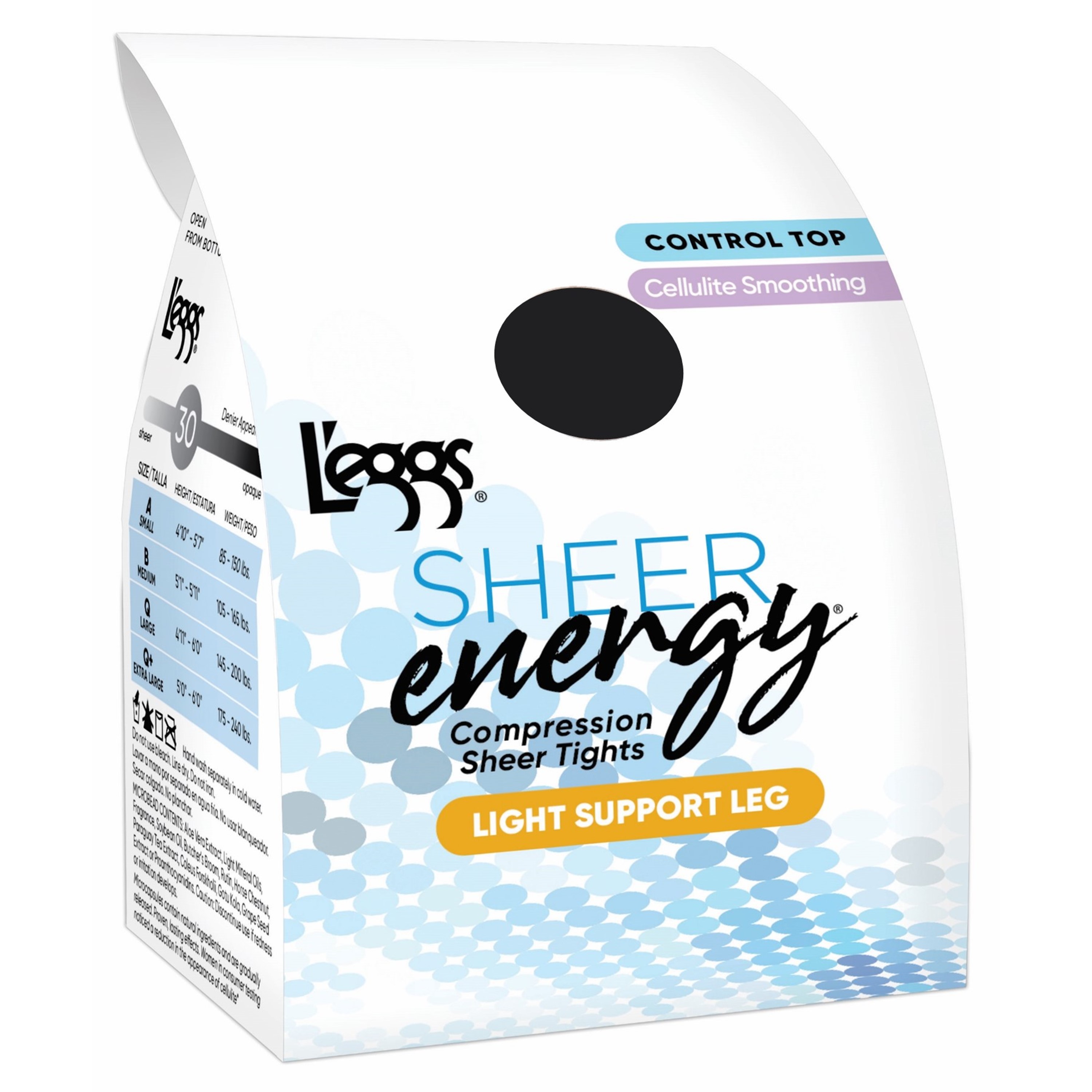)
)
+ 2 opciones
)
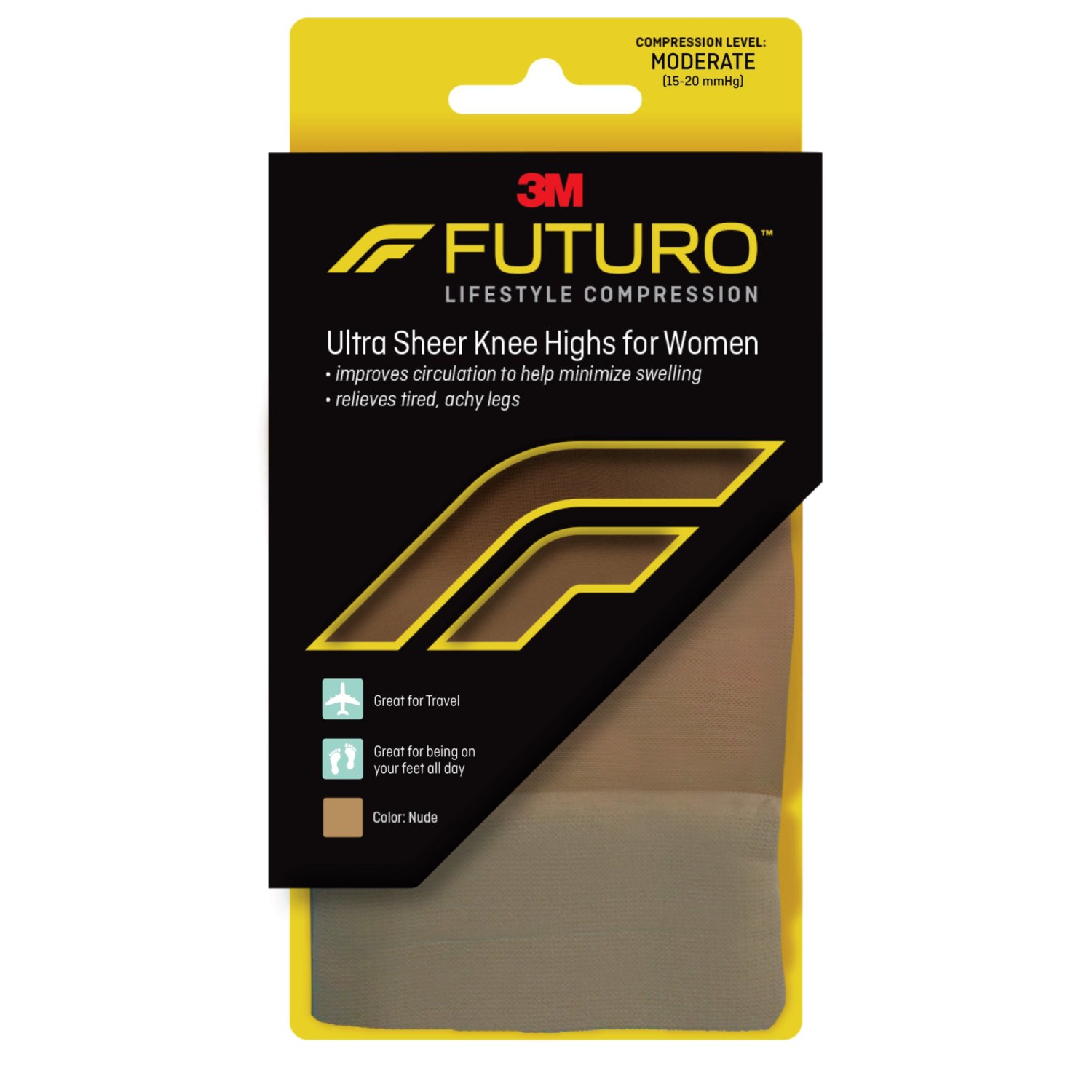)
)
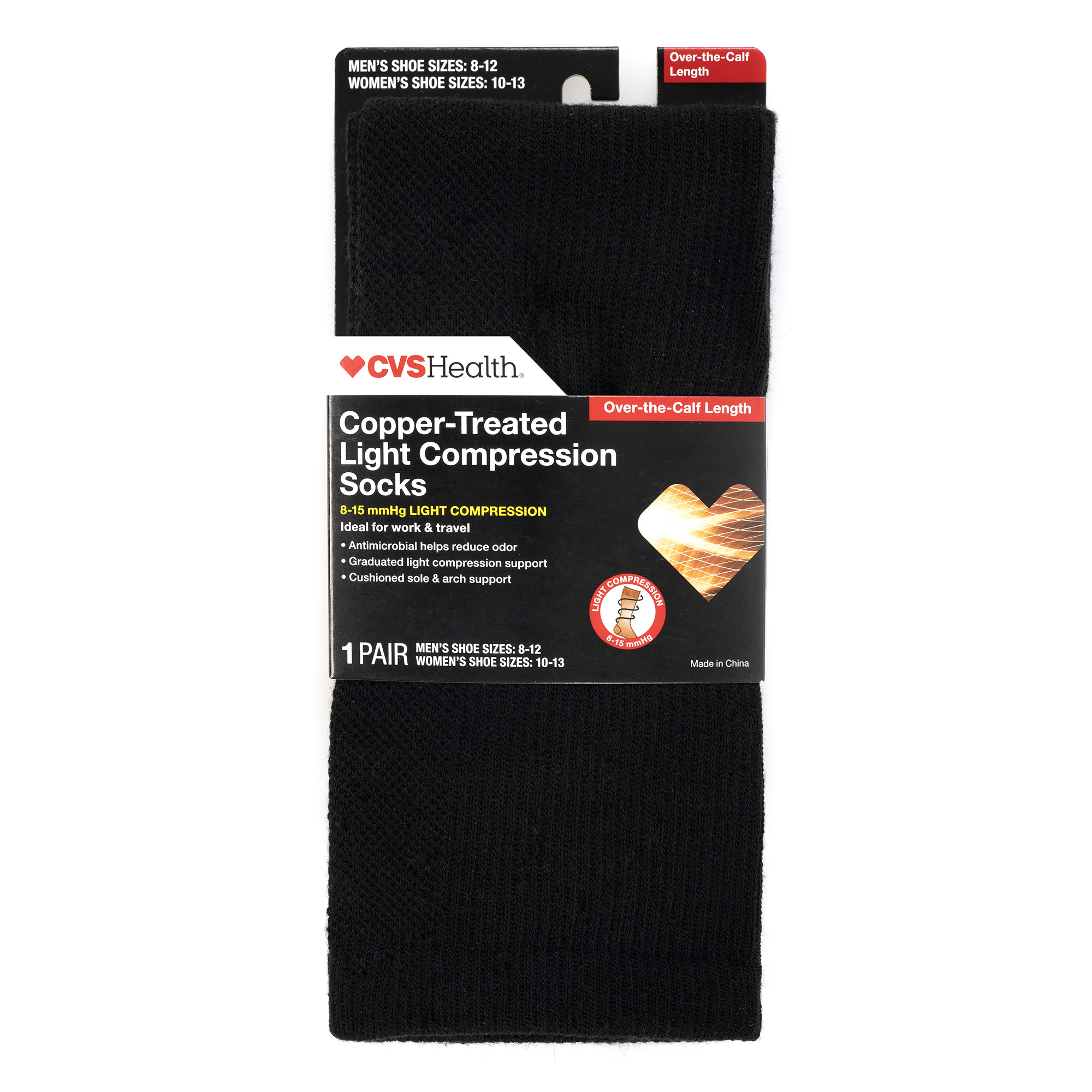)
)
+ 2 opciones
Shop more braces & supports
What is the Difference Between Compression and Diabetic Socks?
Regular compression socks and diabetic compression socks may seem like they are the same thing, but they do vary slightly. For people with diabetes, it is very important to receive the right blood flow, which can sometimes be difficult for lower extremities such as their feet, which could result in blood clots. Diabetic compression socks usually fit looser than regular compression socks to ensure patients with diabetes still receive regular blood flow. They also feature padding and a seamless design to help with extra comfort for those with diabetes.
Why Should Diabetics Wear Compression Stockings?
People diagnosed with diabetes should use diabetic compression socks in order to help regulate blood flow, without the worry of causing damage that regular compression socks could cause. It is very important to pick out diabetic compression socks that fit properly, as if they fit too tightly it could end up causing more damage, defeating the purpose of using them.
It is important for diabetic patients to receive the correct blood flow throughout their bodies, and using diabetic compression socks can definitely ensure that happens. Regular compression stockings do not promote foot health in diabetics, but rather may make it worse. Diabetic compression socks help to promote foot health and proper blood flow, making this product even more useful than regular compression socks.
Medias de soporte
Compression socks and compression hosiery can reduce discomfort and address a number of medical conditions. If your medical provider has suggested that you wear compression hosiery or socks, CVS can help you easily follow that advice. This product selection includes a diverse assortment of compression socks and hosiery that you can buy online and have shipped to your home.
Benefits of Compression Socks
Compression socks and hosiery fit more snugly than conventional accessories. As a result, the socks and hosiery exert light pressure on the legs, helping to allow blood to pass more freely to legs and to move more easily back to the heart. Often, compression socks and hosiery are recommended for individuals who have poor circulation or who experience swelling of the legs and feet. Compression socks may also be worn to help reduce the risk of blood clots, to help ease discomfort in the legs and feet and to help address spider veins and varicose veins.
Levels of Compression Socks
Compression socks and hosiery are offered in varying compression levels. The amount of pressure that the hose or socks exert on the legs is measured in milligrams of mercury, abbreviated mmHg. Mild compression socks typically have ratings of 8 to 15 mmHg and are recommended for mild symptoms. Compression socks are also available with medium firm compression, which is generally 15-20mmHg. Firm and extra firm compression hosiery and socks are available for people who do not get relief with mild and medium options. Medical providers may recommend graduated compression hosiery, which gradually becomes firmer toward the ankle. Uniform compression socks and hosiery exert the same amount of pressure across the leg and are more often used for exercise and sports than for medical purposes. Your health care provider can help you determine which type of compression socks or hosiery is right for you.
Compression Socks Sizing
To get the most benefits out of compression hosiery or socks, you need to select the right size for your needs. Compression hosiery that runs from the waist to the feet is often sized based on height and weight. Knee high compression socks are generally sized based on the circumference of the leg. Sizing for mild compression socks may be determined by shoe or sock size. You can read the product descriptions to learn more about how the socks and hosiery in this selection are sized.
Productos relacionados
Soportes para brazo y codo, Soportes para pie y tobillo, Soportes para mano y muñeca, Soportes para hombro y cuello, Soportes para muslo y rodilla, Soportes para cintura y espalda, Cabestrillo

)
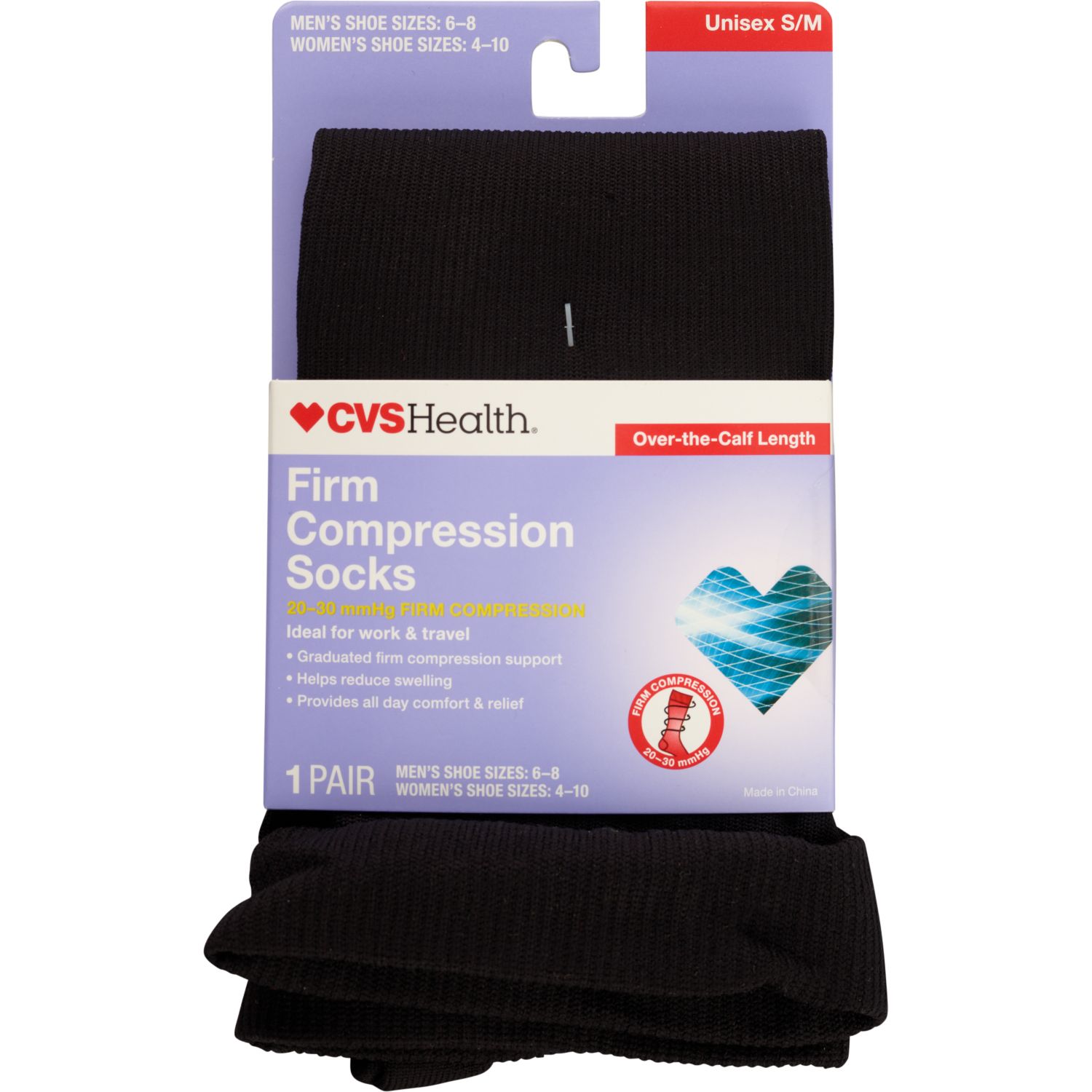)
)
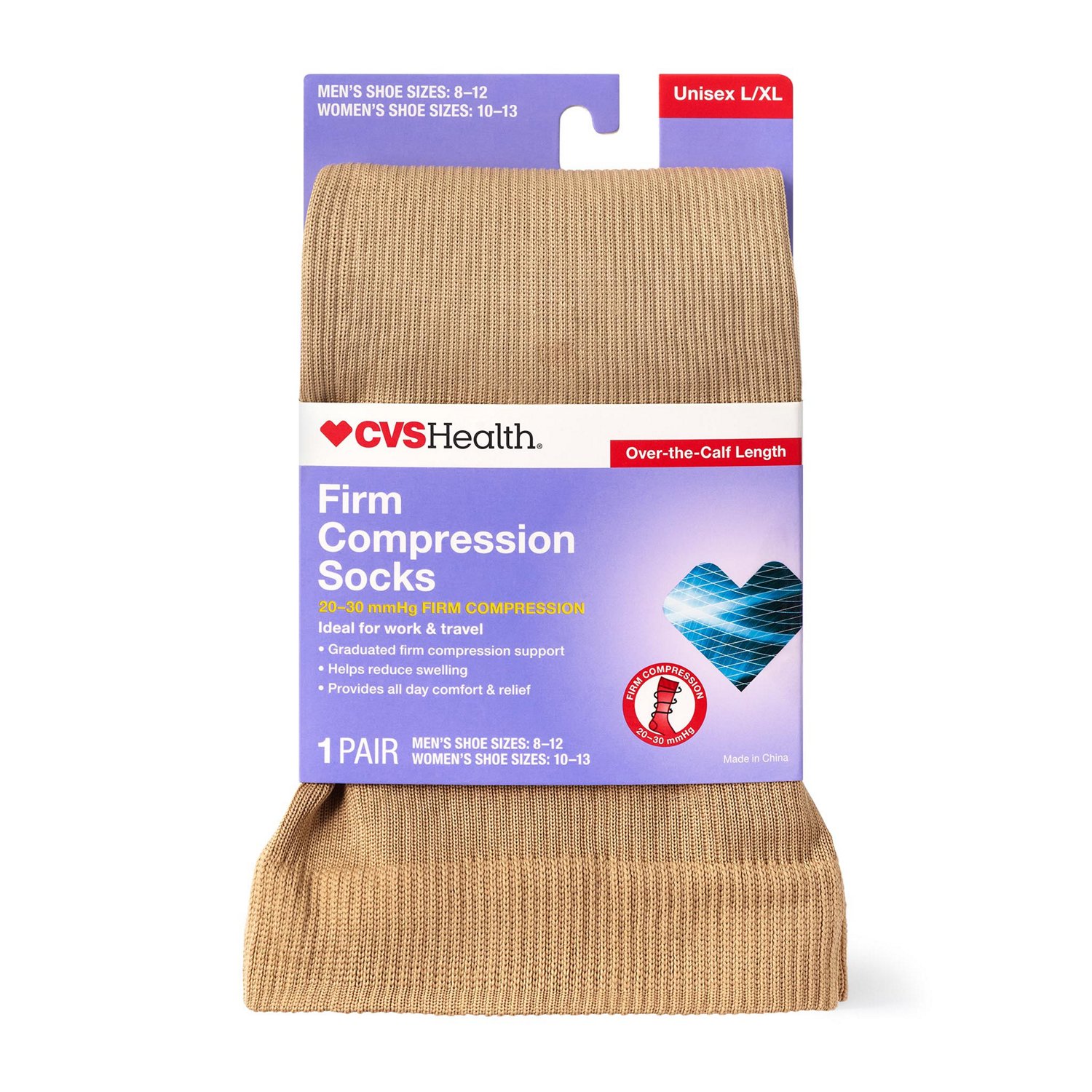)
)
)
)
)